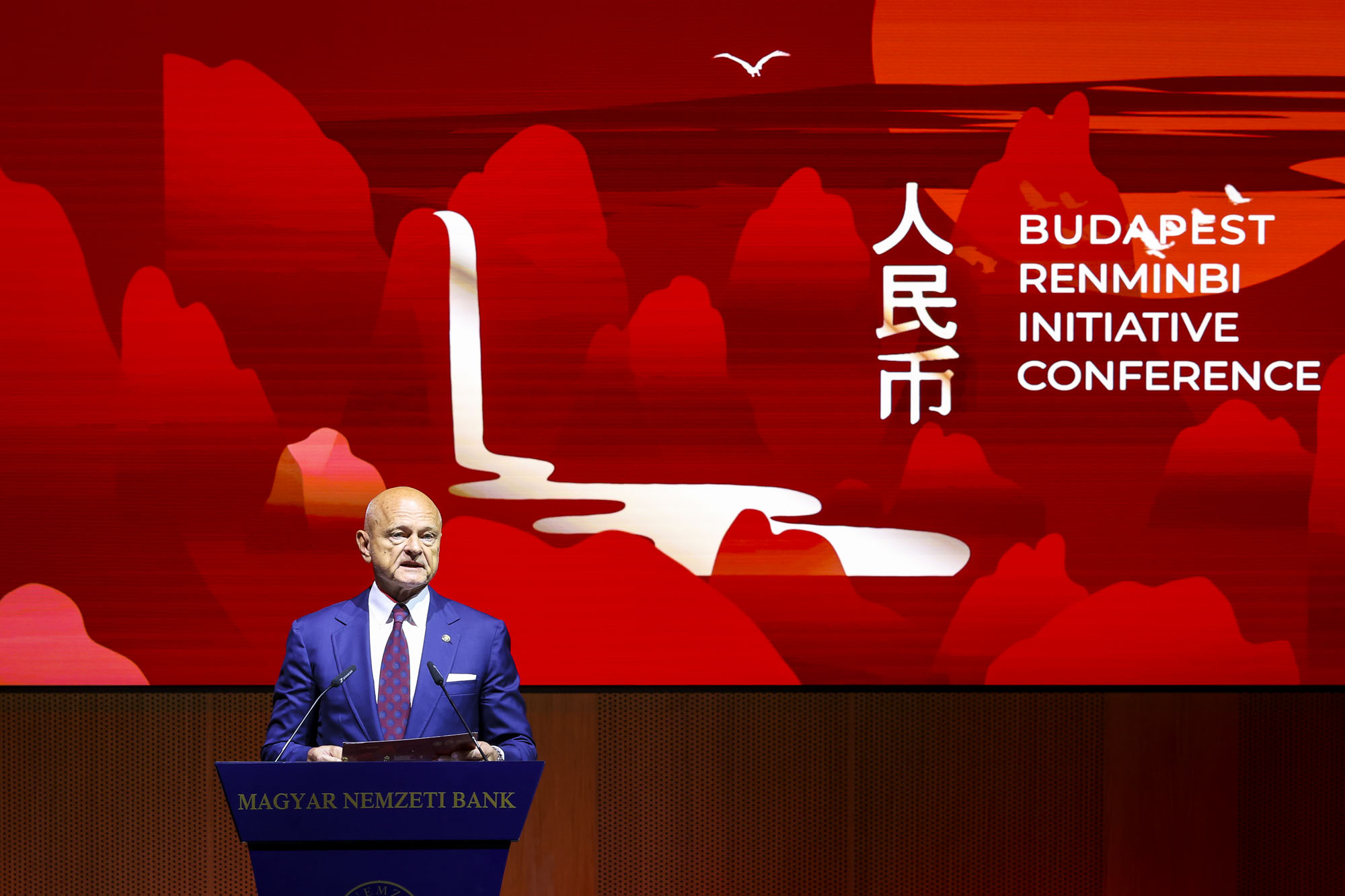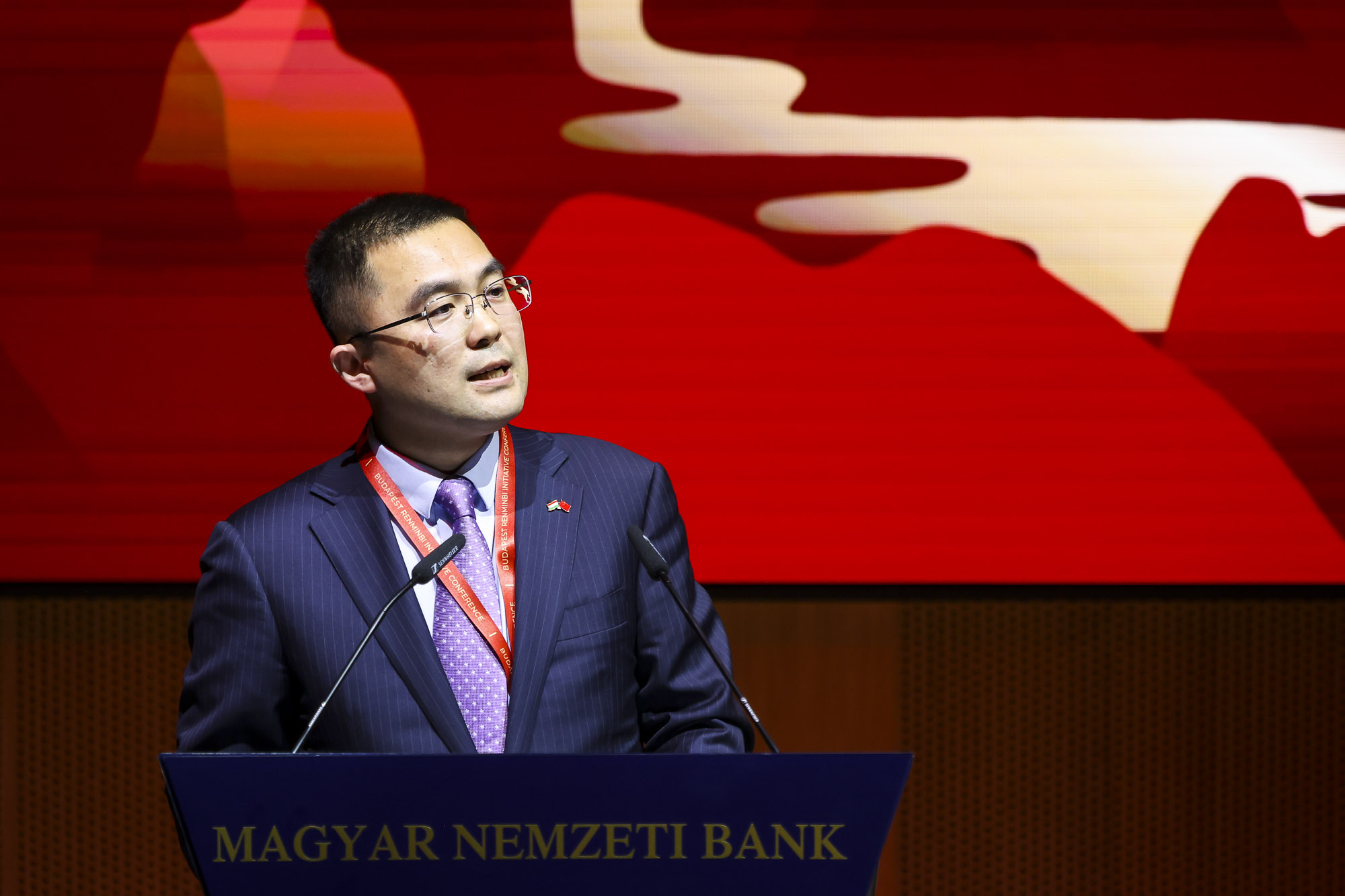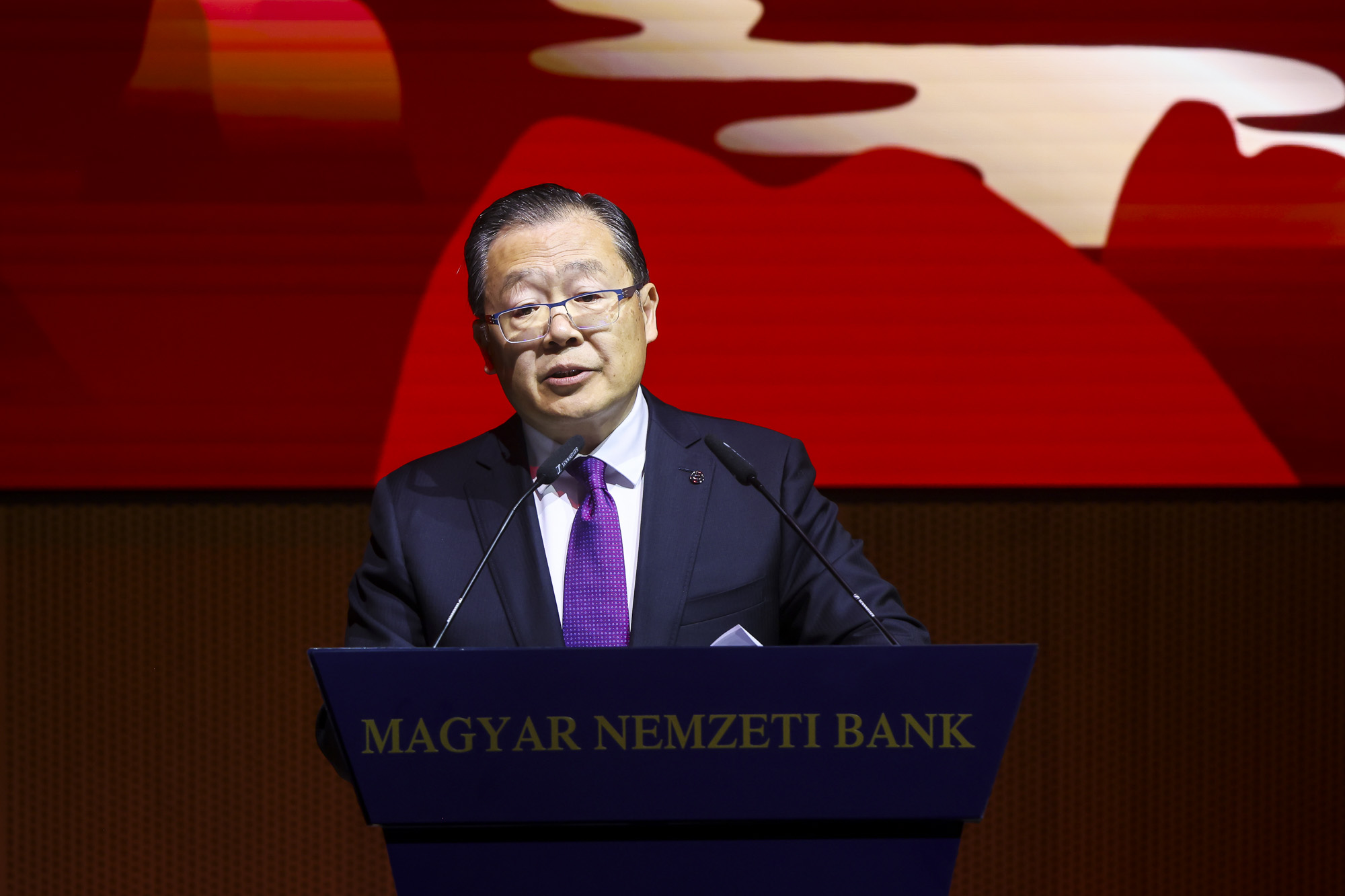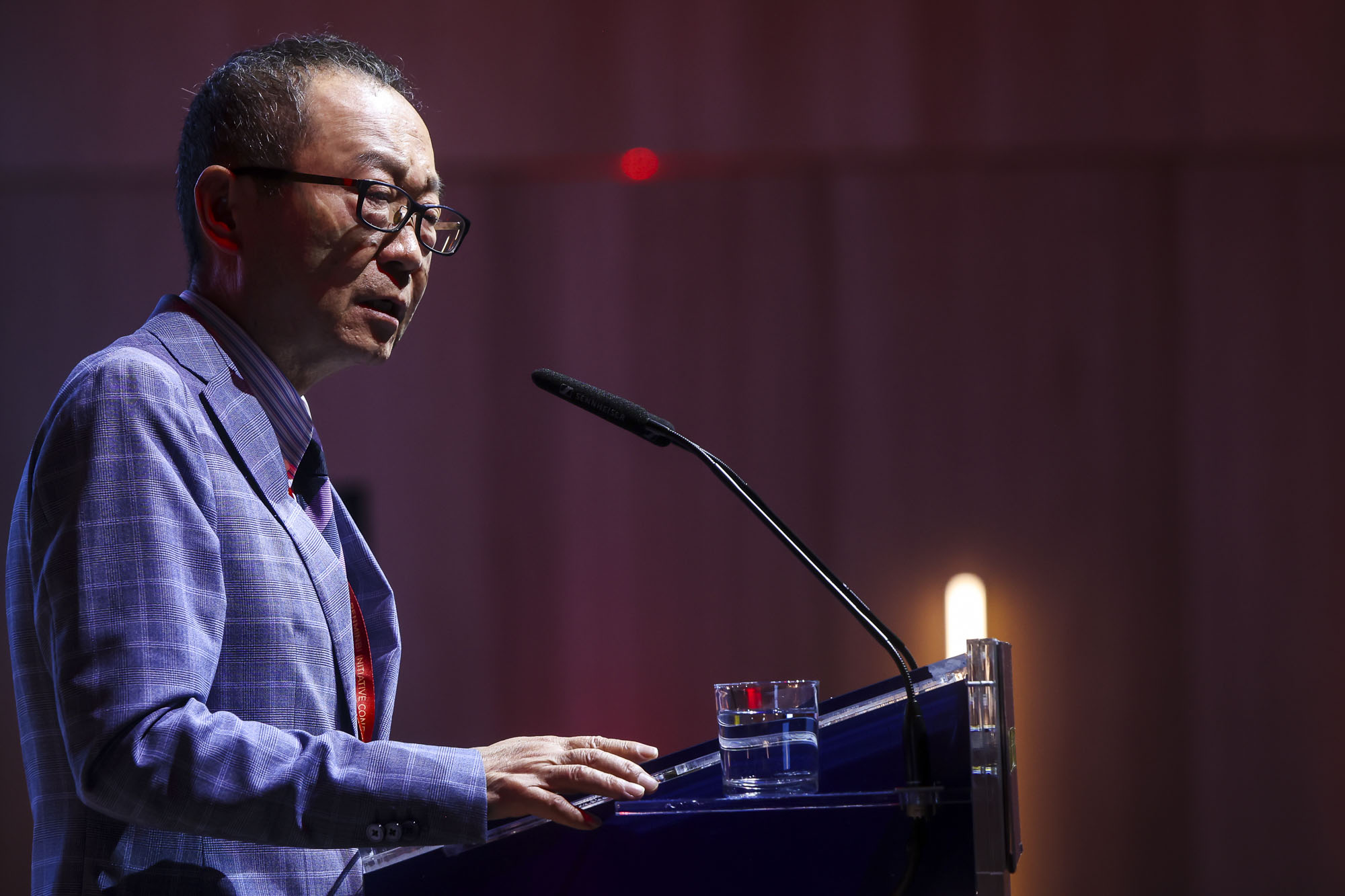




The centre of gravity of the world economy is clearly shifting eastwards, and China's economic weight is also becoming increasingly important, said Zhang Jun, Dean of School of Economics at Fudan University, in his speech. In this context, he highlighted the cooperation with the Central and Eastern European region, the ASEAN countries, and the role of the BRI.
In the first panel discussion, the regional financial role of Budapest, the issues of renminbi financing, and the activities of Chinese banks in the country were discussed by Chen Zhanqing (China Construction Bank), Fang Ruixue (China Development Bank) and Zhao Xiaowei (Industrial and Commercial Bank of China). Li Kexin, CEO of the Bank of China's Hungarian subsidiary, was the panel's keynote speaker, discussing the favourable investment climate in Hungary and the impact of infrastructure investment in the region in the context of the internationalisation of the renminbi.
The role of central banks in a sustainable green transition was discussed by the second panel, featuring Zhang Bei, Deputy Director-General of the Research Bureau of the People’s Bank of China, Alain Naef, Research Economist at Banque de France, and Wing Thye Woo, Distinguished Professor of Economics at the University of California.
The author is Editor-in-Chief of Eurasia Magazine and Director of Eurasia Center